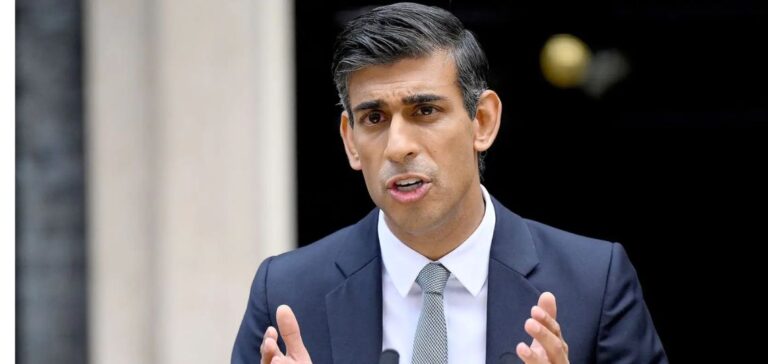British Finance Minister Jeremy Hunt has criticized the market “distortions” caused by massive U.S. subsidies for green energy, but London’ s announcements on its own energy and environmental strategy, which postpone new funding until the fall, are far from convincing.
“Transforming our energy system is no longer just about fighting climate change, it’s also about national security,” Hunt said Thursday in an op-ed published by The Times, also pointing to “threats of protectionism” in the global economy.
The surge in hydrocarbon prices in the wake of the war in Ukraine has hit the UK, which is heavily dependent on gas, particularly hard. Mr. Hunt assured British MPs on Wednesday that the government was considering possible measures to help the country remain “competitive”, but that the details would have to wait until the autumn budget presentation. “We are not going to compete with our friends and allies in a global race for subsidies,” which “distort” the market, he said on Thursday, while the climate plan of U.S. President Joe Biden and his billions of dollars to attract business is worrying in Europe.
The Chancellor of the Exchequer states that the UK will prefer to “target public funding strategically in areas where the UK has a clear competitive advantage”.
Recycling
While waiting for the details of these funds in the autumn, with a view to achieving the carbon neutrality in 2050 to which the country is committed, the announcements made by the government on Thursday have disappointed the opposition and environmental NGOs, which accuse the executive of recycling measures already in place. “These announcements are most notable for their glaring omissions” on onshore wind, home insulation or the response to Washington’s climate plan, denounced opposition Labour MP for energy issues Ed Miliband.
In particular, the government on Thursday re-emphasized a number of measures already announced, such as a £20 billion investment over 20 years in carbon capture and its desire to accelerate the development of nuclear and renewable energy. “These piecemeal, warmed-over and confusing announcements are simply not enough to effectively address climate change or to provide safe and affordable energy to households,” Greenpeace denounced in a statement. “These plans seem lame, half-hearted and dangerously lacking in ambition,” said Friends of the Earth.
The NGO says it will scrutinize the government’s carbon neutrality strategy announcements and may take legal action “if ministers have failed again.”
Private investment
“Private investment will be crucial to achieving the carbon neutrality target” which will require additional investment “of between £50 billion and £60 billion by the late 2020s and 2030s,” the government acknowledged in a document, also released Thursday, on its green finance strategy.
In particular, London states that the transition is “an opportunity for growth for the UK”. But if the government “has grasped the scale of the climate challenge with a major plan to boost green energy production”, it “must not forget businesses” who will see their expenses soar to meet energy reduction targets, warn the British Chambers of Commerce.
London also launched consultations on Thursday in several areas (zero-emission vehicles, acceleration of renewable energy projects, carbon tax) and announced the first projects supported, in particular, in the field of carbon capture. Drax, a power company that has been criticized for using biomass to green its generation, is not among the first winners, but says it has been “invited to begin discussions immediately” with the government. After initially falling, its share price rebounded strongly on Thursday (+6.09% to 609.50 pence around 15:25 GMT).
A report by the Climate Change Committee (CCC), a body charged with advising the government on its climate strategy, said on Wednesday that despite the already visible consequences, the UK has not made sufficient efforts to prepare the country to adapt to global warming.






















